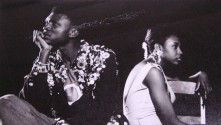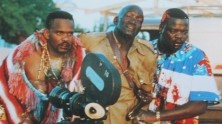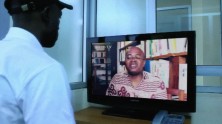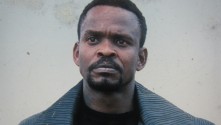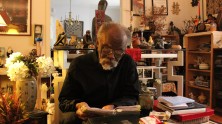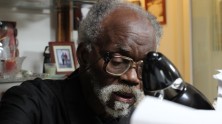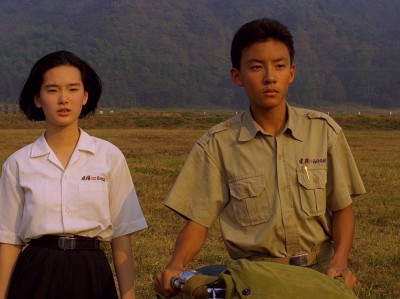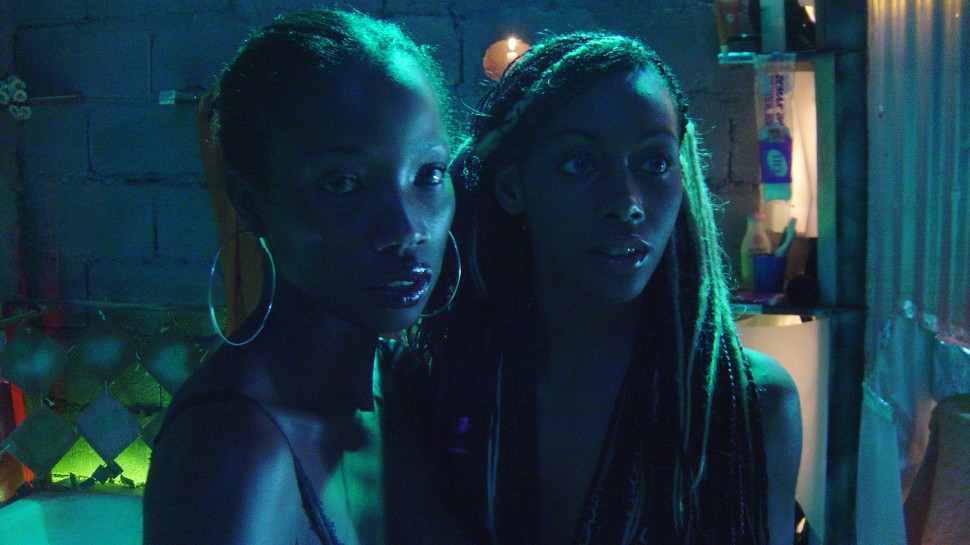
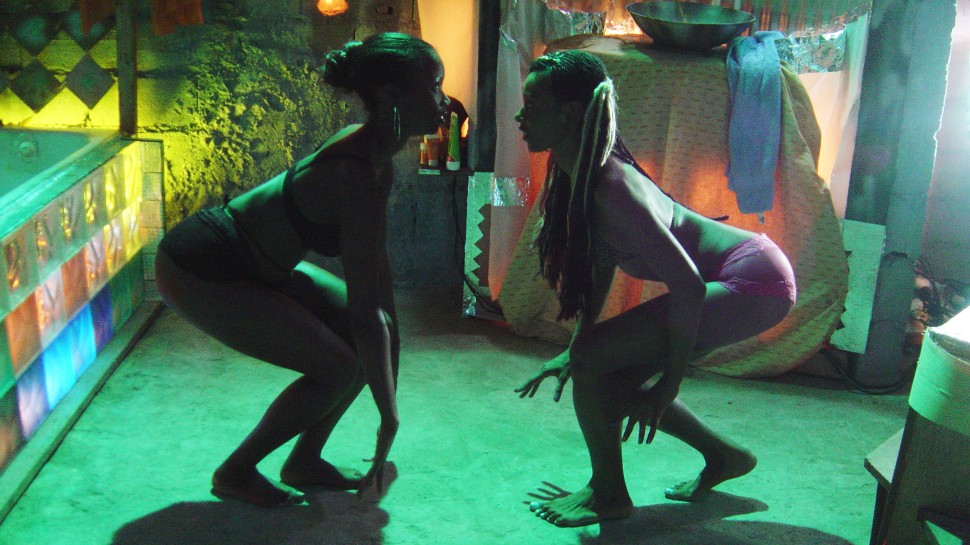
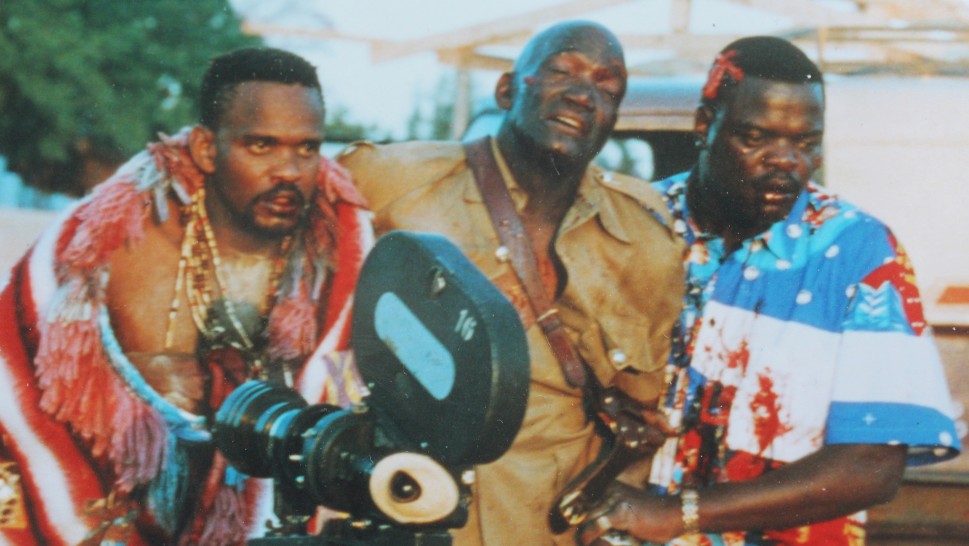
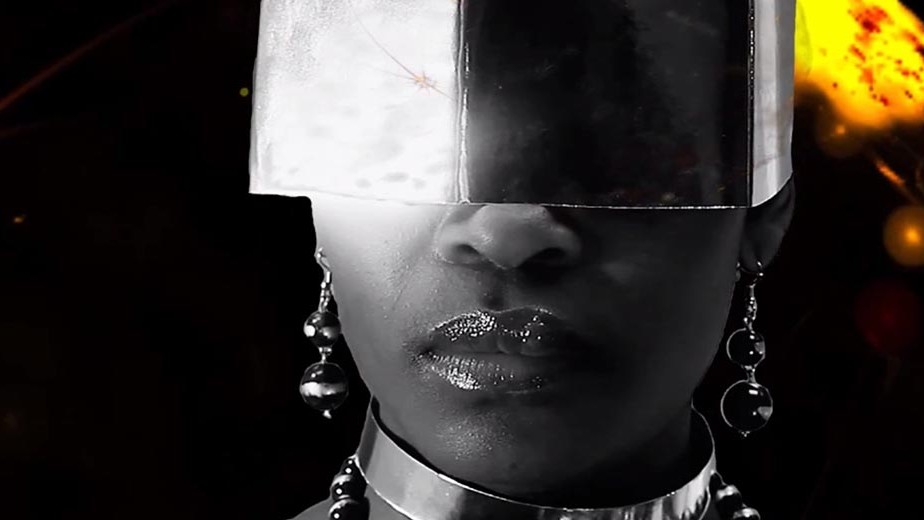
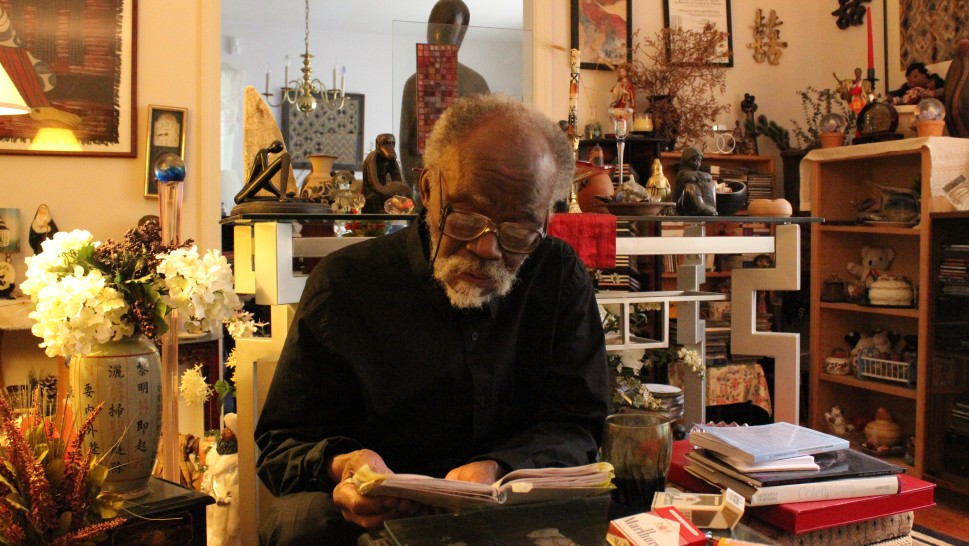
Jean-Pierre Bekolo, 2024 McMillan-Stewart Fellow
In 1992, both Jean-Pierre Bekolo (b.1966) with Quartier Mozart and Quentin Tarantino with Reservoir Dogs (along with Julio Medem) were nominated for the London Film Festival’s prestigious Sutherland Trophy as two of the most promising cinematic voices in the years to come. Flash-forward three decades later: Hollywood filmmaker Tarantino is now a household name around the globe, while equally talented and maverick Cameroonian/African filmmaker Jean-Pierre Bekolo has, in spite of a truly brilliant and cerebro-visceral output, unfortunately and, arguably, unjustly not received the same amount of attention. This structurally uneven and unequal political economy of world cinema, which shapes and defines the destinies of filmmakers around the world, underlines the need to celebrate and honor Jean-Pierre Bekolo’s insufficiently recognized, yet thoroughly original, deeply reflexive, and always profoundly forward-looking cinema of questioning.
Jean-Pierre Bekolo came to cinema in the mid-1980s as a student of physics and chemistry at the University of Yaoundé in Cameroon. Taking advantage of the newly opened national television station, he received training as an editor for two years, in the process directing many music videos including one for popular Cameroonian musician Charlotte Mbango. From 1988 to 1990 Bekolo attended the famous Institut National de l’Audiovisuel in Paris and took courses with world-renowned film semiotician Christian Metz. After the release of three short films, his first feature film, Quartier Mozart (1992), announced the advent of a groundbreaking, innovative voice in African and world cinema, one who was at once part of the MTV generation of Africans and was also deeply influenced by the films of Spike Lee and by American popular cinema more broadly. Immediately, the film was selected and celebrated at the 1992 Cannes Film Festival.
Bekolo continued to develop a rich, multilayered and complex filmography including such classics as Aristotle’s Plot (1996), Les Saignantes (2005), and Le président (2013); exploring newer terrains with Naked Reality (2016), Miraculous Weapons (2017) and Nous Les Noirs (2021); and more recently producing a filmic adaptation of Djaili Amadou Amal’s novel Walaandé, the Art of Sharing a Husband (2023), directed by Thierry Ntamack. In addition to filmmaking, Bekolo’s artistic practice navigates the worlds of the gallery and the museum, of knowledge production and dissemination as well as collective action and organizing.
It was clearly apparent, at least since Aristotle’s Plot, a film commissioned by the British Film Institute as part of its celebration of the centenary of the cinema, that Bekolo was, at his core, an essayist in the noblest sense of the term, who sought to work out his interrogations, ideas, thoughts and affects in his own subjectively experimental, tentative and nondogmatic ways. Indeed, since the end of the first decade of the 2000s, Bekolo has been publishing essays, blogs and various forms of reflection both on the significance and relevance of the cinema as well as on the challenges and the destiny of the African continent, including Africa for the Future, Sortir un nouveau monde du cinema (2009) and more recently Cinema as a Transformative Tool for the Therapeutic Intellectual (2023). Together, these writings reveal a mind at once restless, perpetually inquisitive and questioning, always innovative while remaining profoundly dissatisfied with a lenifying status quo both in cinema as a means of representation and with the object of representation itself, i.e. the real, African and otherwise. There is in Bekolo a double impulse to transform the real itself as well as the means to represent it, making his work profoundly philosophically inflected.
In addition to committing his own reflections and musings to paper, Bekolo has also in the last decade sought to disseminate the thoughts of others through the moving image. Arguably inspired by Michel Gondry’s documentary Is the Man Who Is Tall Happy? An Animated Conversation with Noam Chomsky (2013), Bekolo would devote a three-hour documentary, Mudimbe’s Order of Things (2015), to one of the foremost African philosophers, Valentin Mudimbe, author of such classics of postcolonial theory as The Invention of Africa (1988). Perhaps Bekolo’s single most comprehensive effort in this area involved filming the now famous “Workshops of Thought” (Les ateliers de la pensée) initiated by prominent African public intellectuals Achille Mbembe and Felwine Sarr. In doing so, Bekolo positions himself as a traveling companion to major African scholars and intellectuals, situating the cinematic field as another battlefield for both discursive and actual social transformation.
Jean-Pierre Bekolo’s work exceeds the focus on his own cine-artistic output. A decade after the beginning of his film practice and upon his return to France following his North American years, roughly 1998-2000, he decided to join and actively take part in one of the most important film movements in the history of African cinema, the Guilde of African Filmmakers and Producers. Created in the mid-1990s as a self-conscious group which sought to initially establish its distances from the much larger Pan-African Federation of Filmmakers (FEPACI), it saw itself as the gathering of filmmakers who had a love for Africa in common, who shared a location as displaced African subjects/cultural producers in major European/formerly colonial metropolises (primarily Paris/France), and who benefitted from the singularity of their bidirectional insider/outsider gaze at the continent. This globalization generation of African filmmakers was also the first generation to embrace the promise of the digital as a way of reinventing African cinema and the cinema more generally. This group included some of the most prominent contemporary voices of African cinema, from Jean-Marie Teno, Nadia El Fani, Jihan El Tahri, Abderrahmane Sissako and Fanta Nacro to Mahamat-Saleh Haroun, Dani Kouyaté, Issa Serge Coelo, Jacques Trabi, Fatma Zohra Zamoum, Balufu Bakupa Kanyinda and Mama Keïta.
Most famously, Bekolo’s participation within the Guilde included a major intervention at the 2007 Cannes Film Festival. As part of its celebration of its sixtieth anniversary in 2006, Cannes had commissioned filmmakers from around the world to each direct a part of an omnibus film but had not invited African filmmakers to participate, with the exception of Youssef Chahine. For several years, the festival had also failed to select a single African film in its official competition. Bekolo spearheaded a press campaign to denounce this, pondering whether this was a case of racial profiling related to “the color of our images,” arguably anticipating by over a decade the #OscarsSoWhite movement.
Jean-Pierre Bekolo is also an accomplished educator who has lectured at various universities in Europe and the United States. In recent years, he has initiated the Scripto Sensa Workshops focusing on book-to-film adaptations and invented what he refers to as an “Alphabet of Film” in which he breaks down “cinematic elements into symbols and cards.” – Aboubakar Sanogo, Carleton University
Bekolo’s extended visit to Harvard as the 2024 McMillan-Stewart Fellow in Distinguished Filmmaking will feature nearly all of his theatrical releases. The Harvard Film Archive is thrilled to welcome Bekolo to discuss his inventive, otherworldly cinema and presumably much, much more

